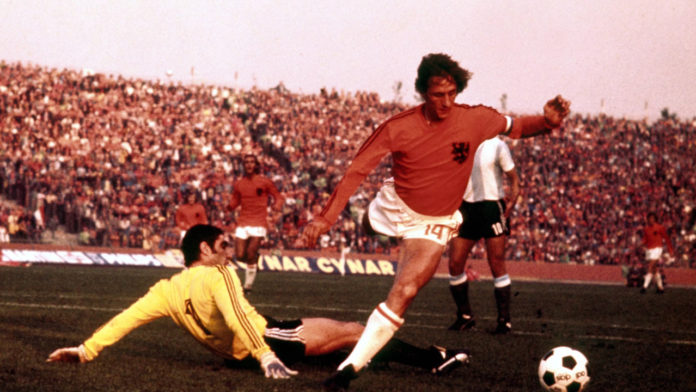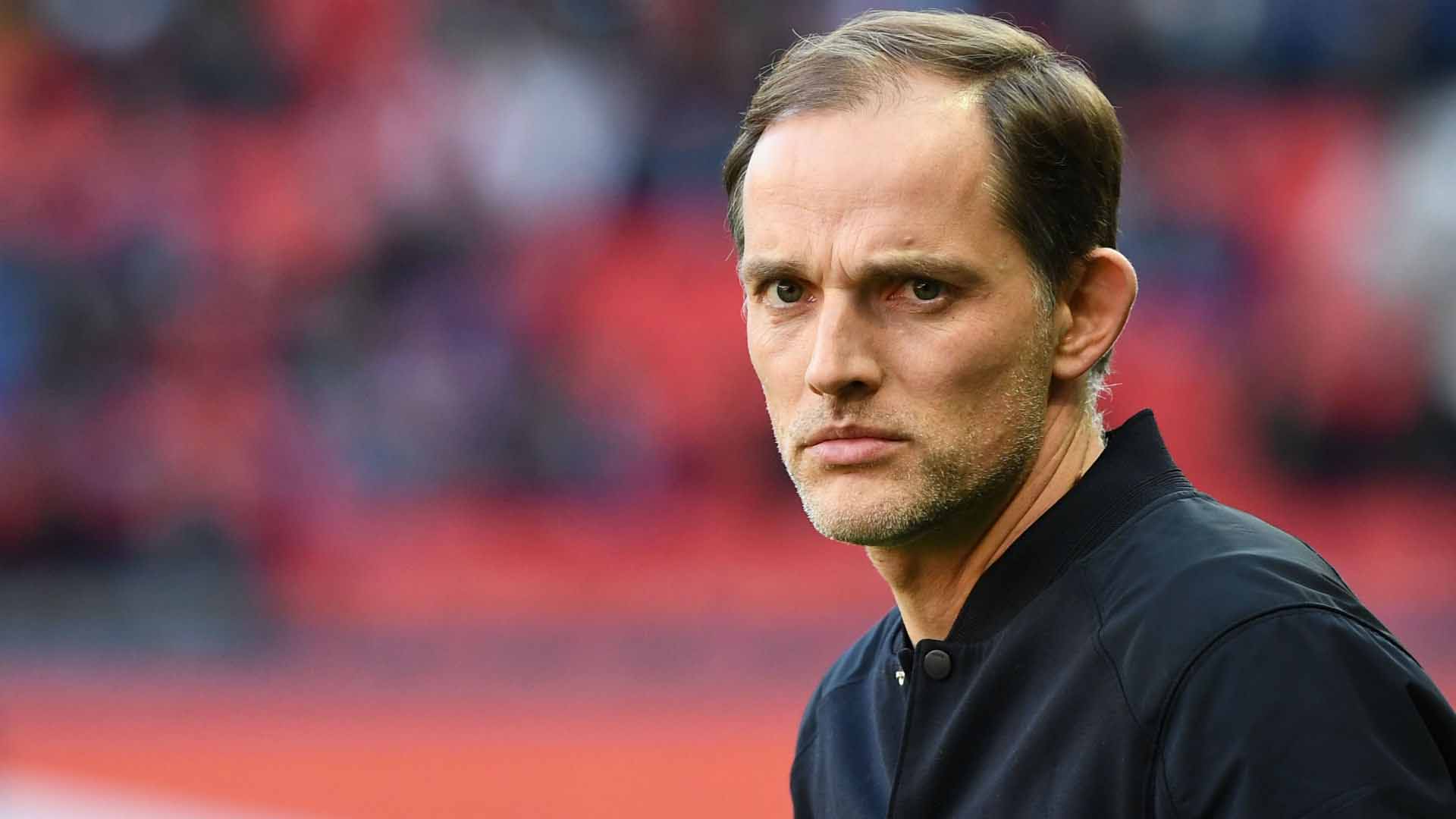Johan Cruyff. Forever immortalised as Total Football’s mastermind, the talisman of the Netherlands in the 70s and as one of the greatest football players ever to grace the game.
This article aims to explain how Johan Cruyff has shaped the game we know and love today, and how his career still greatly affects us now.
Early Football Career:
Cruyff grew up in a working class area in Amsterdam, just 5 minutes from the Ajax stadium.
He joined his boyhood club, Ajax, at the age of ten, under youth trainer Jany van der Veen.
His debut was given to him in 1964, under Vic Buckingham, but it was next season where he first started making a real impact in Amsterdam.
Rinus Michels took over as coach in 1965, and handed Cruyff Ajax’s second ever professional contract (after Piet Kiezer). Him and Cruyff formed a special relationship, and their relationship formed the basis of the invention of total football. Cruyff and Michels took Ajax from a struggling, badly run club to European champions in just 6 years.
Ajax, with Cruyff as talisman, went on to win 15 trophies in his first stint, including three back-to-back European cups. His success led to two ballon d’or wins, in 1971 and 1973, at
Ajax, and he was widely considered to be one of the best players in the world. However, following the appointment of head coach Kovacs, Cruyff felt that Ajax had taken backward steps, and left for Barcelona in 1973.
Later Playing Career:
Cruyff reunited with Michels at Barcelona, winning another ballon d’or in 1974 along with the La Liga that year. His most notable accomplishment was on the international stage, however.
Michels and Cruyff led the Netherlands to an unexpected final in 1974, where they unfortunately succumbed to defeat at the hands of Beckenbauer’s West Germany. The Dutch, led by Cruyff, had still shown the world the brilliance of total football.
While Cruyff did not have the same success later in his career, he is recognised on footballing ability alone as one of the greatest of all time, for his technical skill and tactical acumen on the pitch. However, it is what came after his playing career that sets him apart.
Management Career:
Cruyff is considered to be one of the greatest managers of all time, and developed Rinus Michels’ great theories even further to great success, most notably with Barcelona.
He started in Ajax, slowly developing players such as Frank Rijkaard and Marco Van Basten.
While not having extraordinary success, Cruyff still won three trophies in five years and carried on the legacy of attractive football from Holland’s biggest club.
In Barcelona, he built the arguably greatest club team of all time, featuring Michael Laudrup, Stoichkov, Hagi, Koeman and Guardiola. The ‘Dream team’ went on to win 4 La Liga titles in a row and one European cup. Only Guardiola has more trophies than Cruyff at Barcelona. Cruyff’s management career was not extremely lengthy as he pursued other areas of interest, including technical directory and setting up his own charity.
Management Style:
Cruyff carried total football with him into his management career. He utilised a formation little seen nowadays, a 3-3-4 with the front four as a diamond and the middle three with one deeper midfielder. While the specific formation is not used anymore, managers such as Pep Guardiola have taken inspiration from Cruyff and implemented their own creative tactical setups – take Manchester City’s champions league winning team using 3-2-4-1 for example.
The key ideas were always present – total football and ‘tiki-taka’. Total football led to the usage of players such as Ronald Koeman, who had the passing ability of a midfielder while playing in defence. This led to ease of switching roles mid game, a system which has been utilised by Ange Postecoglou’s spurs team this season. Tiki Taka, while not being named in Cruyff’s time, has since been characterised as the short passing, movement and keeping the ball that the world saw particularly in Guardiola’s
Barcelona team. Cruyff often implemented a ‘winning-with-style’ mentality which can be seen more widely today, particularly in the Premier League, where managers like Jurgen Klopp have put a German, Gegenpress, spin on attractive football, combining high pressing with fast attacking to produce wildly entertaining football.
Total Football Now:
The last decade has seen a sharp increase in the use of Total Football. Cruyff’s main direct managerial disciple is Pep Guardiola, who’s Tiki Taka in Barcelona, Munich and Manchester has led to him being considered one of the greatest managers of all time. However, since Guardiola’s first managerial job many more suitors for the system have come to the fore.
Many managers have coupled Gegenpress with Total Football, particularly in Germany. Coaches such as Julian Nagelsman and Jurgen Klopp have utilised this philosophy to great effect, winning numerous trophies while playing entertaining football. This trend is becoming the norm for many teams now, as coaches like Jose Mourinho find themselves being slowly left behind with their Catenaccio style of play.
One of the greatest examples is Spurs this season. Ange Postecoglou has reportedly said “it doesn’t matter who’s in the position, as long as someone’s there.’ This epitomises the essence of total football. As a player like Destiny Udogie moves infield, it leaves the space for Maddison (when fit) to drop into the left-back hole with space to play. This example can be seen when Spurs have a full team, and all the players move like clockwork around each other to create space and chances.
Conclusion:
Overall, Johan Cruyff’s playing career alone puts him in the top 10 footballers of all time.
However, his legacy leads to him being the most influential player of all time. Without Cruyff,
football would not be the same sport as we know it. It may not even be the global sport it is today, and definitely would not be as entertaining. Nearly all we know in football, we owe to Johann Cruyff. Thank you, legend.




